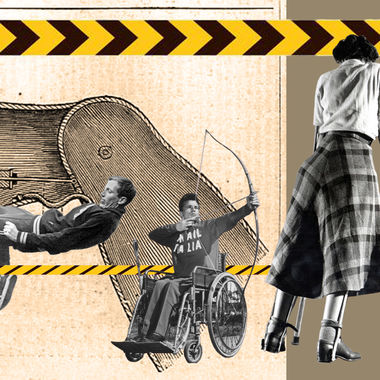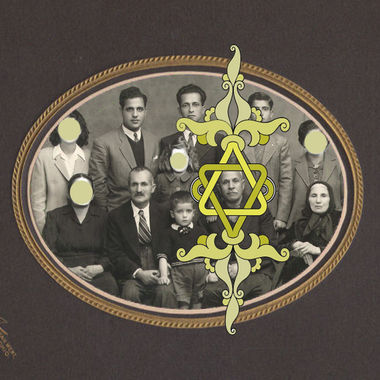
“The first time we met our baby was extremely emotional,” says Ani, whose child was born with the help of a surrogate mother. When Ani saw her baby for the first time, their nine-year journey to have a child played out like a movie before her eyes. Ani and her husband are now expecting their second child, who will be delivered with the help of another surrogate mother. She says that they dream of having five children and that they will tell each of them the story of their birth.
Making the decision and finding a woman who would agree to be a surrogate mother wasn’t an easy journey. “We strongly believe that being a surrogate mother is a unique mission. When we made the decision to find a surrogate mother, we immediately realized what a difficult process it is in our country,” Ani explains and adds that there are special brokers who help couples who can’t have children of their own to find women who would agree to be surrogates. Ani and her husband didn’t go through a broker. “One of our relatives told us about a woman that had become a surrogate mother once, giving birth to a healthy child,” she says. “Our relatives said she was very responsible, so we met her and chose her to be our surrogate mother.”
Ani and her husband maintain good relations with the woman who gave birth to their child. She has become a part of their lives. “I never feared that our surrogate mom would refuse to give us our child because there’s a paragraph in the law,” Ani explains. “But for me, the laws weren’t important, because I got to know our surrogate mom very well. I was with her for the whole nine months.” They rented an apartment for her, bought her clothes and winter shoes and even went shopping together for the baby. “We have a good relationship with her and I hope to continue that because we will always be grateful to her for what she did for us,” Ani says.
Surrogacy is a reproductive health technology in which the embryo is conceived through in-vitro fertilization (IVF) and then transplanted into a surrogate mother. The surrogate then carries and delivers the child. The embryo is conceived using the egg and sperm of the intended parents. According to Armenian Law, 18-35 year-old women, who successfully pass all the necessary medical-genetic examinations, can become surrogate mothers.
Up until 2002, the Law on Reproductive Health and Reproductive Rights stipulated that surrogate mothers could also be egg donors. However, in 2012, the law was amended and now prevents surrogate mothers from being the egg donor. This means that under no circumstances can a surrogate mother demand a child she delivers because the baby genetically belongs to its biological parents. Paragraphs 9 and 10 of Article 15 of the Law clearly states that the surrogate has no rights to the child, nor does she bare responsibility towards the child she delivers.
Article 18 of the same law stipulates that any information regarding reproductive support technologies used is confidential and not subject to be published. The information can be provided only with a court order. It is noteworthy that Article 11 of the Law forbids determination of the sex of the child. It clearly states that during the use of reproductive support technologies, determination of the sex is forbidden except in cases when gender specific genetic problems may impact the health of the child.
Narine (name is changed) has twice become a surrogate. She is married with children of her own. Her husband had to give written permission for her to become a surrogate mother as prescribed by law (According to the Armenian Law, a married woman should have the consent of her husband to become a surrogate mother). She has delivered healthy babies and has received the money arranged between her and the couples.
“What I did for those couples is not an immorality to be ashamed of,” Narine says. “God knows that I didn’t do anything bad, I’ve just helped the couples to have babies, I’ve given them the happiness they’ve struggled to find for many years.” She says she gave up the child easily because she knew it wasn’t biologically hers. “My family has greatly supported me and this is the most important thing for me,” Narine notes.
Gynecologist, reproductive health specialist at the Shengavit Medical Center in Yerevan, Anna Khachatryan believes that the Law is quite perfunctory and many significant paragraphs regulating the relations between the couple and surrogate mother, or the rights of any of the parties are missing. “There is nothing about what happens if the baby is born with health problems and the biological parents refuse to take him,” Khachatryan explains. “My experience has shown that women in Armenia choose to be surrogates mostly because of their economic situation.” According to the physician, surrogacy in Armenia is relatively cheap, hovering around $20-30 thousand US, while in other countries, services can balloon to $100,000 US. While comparatively inexpensive, women in Armenia choose to be surrogates to help ease the financial strain in their own families.
When money exchanges hands, it is known as commercial surrogacy, that is, when a surrogate is paid for carrying a child. There is also altruistic surrogacy when a surrogate doesn’t receive monetary compensation, only realistic out-of-pocket expenses are covered by the intended parents. In altruistic surrogacy arrangements, the surrogate is usually a close relation to the intended parents. Some countries, such as France, Germany, Italy and Spain prohibit all forms of surrogacy, while others like Australia, the United Kingdom and Denmark allow only altruistic surrogacy.
In Armenia, where the practice is regulated by law, a surrogate mother may receive money for giving birth to the child from the person or couple according to a signed agreement (Article 18, Paragraph 11). The intended parent(s) covers all the costs related to the pregnancy, delivery, elimination of complications established by medical documents. The surrogate mother determines the amount of compensation she will receive following the delivery of the child.
Dr. Anna Khachatryan says that when the child is born, it is immediately taken from the surrogate mother,.“But sometimes, the couple wants the child to be breastfed and for the surrogate to feed him,” she notes, but adds that these cases are rare.
According to Khachatryan, a surrogate doesn’t get prepayment and receives the full amount only after delivering a healthy baby and after DNA analysis confirms that it is the biological child of the intended parents. “Most of the surrogate mothers I’ve met have concerns about having a healthy pregnancy and delivering a child without health issues to receive their money,” she says. “They do all of this for the money.” These concerns are justified because if something happens and if for some reason the intended parents refuse to take the child, then the surrogate is left with nothing.
What happens if for some reason, the surrogate delivers a healthy child but she dies? “You have asked a question I have no answer to. That is why there are many parts of the law that should be reviewed,” Khachatryan said. “If the surrogate is married, I suppose the money goes to her husband or family member, but if not, I don’t know, there’s nothing about your question in the law.” The physician does know that if the child dies, the surrogate doesn’t receive compensation because according to the agreement, she must deliver a healthy child to the parents.
Armenian law allows individuals, married couples and even citizens of foreign countries to apply for a surrogate mother. The attending doctor must be informed that the baby the surrogate is carrying is not hers and has biological parents. “There are cases when the intended parents know every piece of information about the surrogate mother, but they choose not to meet her,” Khachatryan explains and adds that while she understands it’s their choice, it presents with some difficulties as all communication is done through a third person. “It’s extremely important to accompany the surrogate to the doctor or any medical examination during her pregnancy, to follow her diet, etc., But, anyway, it’s their decision,” she says.
Agreements and arrangements between the parties vary according to the doctor. Sometimes, the intended parents provide a monthly stipend, anywhere from 150-200 thousand AMD to the surrogate, sometimes they invite her to live with them during the pregnancy or provide her with nutrition, clothes, etc. The process is very individual.
While infertility rates seem to be decreasing in Armenia (in 2000 it was estimated to be about 32 percent), there remain many people who struggle with the condition (unverified numbers suggest it is about 15 percent of the population, however, since 2014 there are no official statistics). According to the World Health Organization (WHO), infertility is “a disease of the reproductive system defined by the failure to achieve a clinical pregnancy after 12 months or more of regular unprotected sexual intercourse.” Dr. Anna Khachikyan, an OB-GYN at the Hormone Medical Center says that when couples are not able to conceive a child after one year, they should seek medical attention. She says that she advises both the husband and wife to be examined. “There is a misunderstanding in Armenian society that only women are responsible for infertility,” Khachikyan says. “Infertility can have two reasons - male and female - and male reasons have become quite common recently.” She goes on to say that most men in Armenia refuse to accept that they might be infertile. “It is only after getting some information and understanding that they love their wives and want to make her happy, do they go to a doctor,” she explains and adds that once they’ve determined that everything is fine with the man do they move on to explore the causes of infertility in the woman.
In Armenia, there is a generally negative attitude toward women who decide to become surrogate mothers. Globally, there is controversy over surrogacy that involves the exchange of money, some describing it as baby selling and a vehicle for the exploitation of poor women. With continuing economic hardship in Armenia, policymakers and health professionals need to address issues in the current legislation that may leave surrogates vulnerable. One thing, however, is irrefutable: many couples facing the pain of infertility experience the joy of parenthood thanks to surrogate mothers.
related
A Hidden Minority: Children With Disabilities in Armenia
By Kristen Anais Bayrakdarian
“There are no invalids in the USSR!” This much heard expression exemplifies how people with disabilities were stigmatized in the Soviet Union. How pervasive is the exclusion of people with disabilities in post-Soviet Armenia? Anais Bayrakdarian talks to experts working in the field and writes that the true measure of any society can be found in how it treats its most vulnerable.
Independence Generation: Perceptions of Family and Marriage
By Maria Titizian
There is little doubt that in the collective consciousness of the Armenian nation, the family is one of the most important institutions. But how does this notion manifest itself in a modern societal setting, impact gender roles and individual decision-making? Maria Titizian takes a look at the findings of the Friedrich Ebert Foundation's Independence Generation Youth Study - 2016.
The Irreversible Consequence of Indifference
By Gohar Abrahamyan
Journalist Gohar Abrahamyan stumbled upon a scuffle on one of the central streets of Yerevan involving an elderly man and his young grandson. While trying to understand the situation, Abrahamyan also uncovered the irreversible consequence of people’s indifference when they witness abuse.






